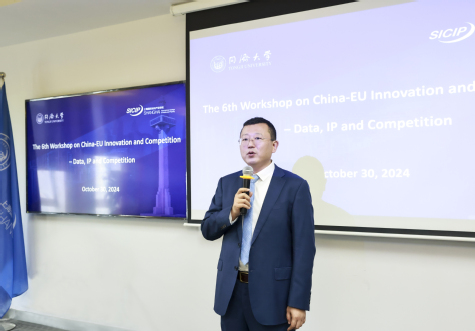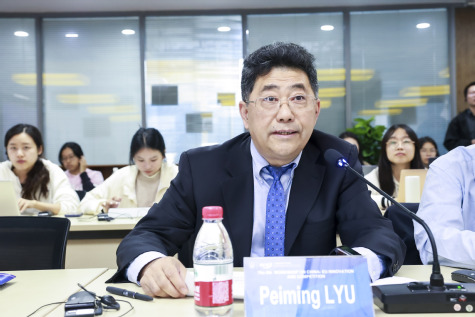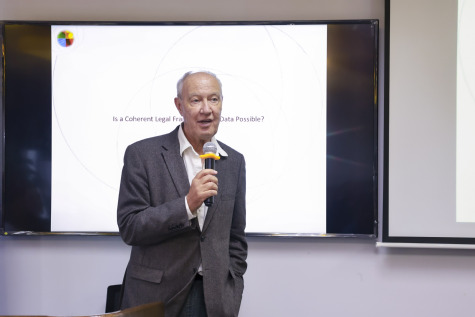

On October 30, the 6th Sino-European Seminar on Innovation and Competition was held at the Shanghai International College of Intellectual Property. The opening ceremony was attended by Lyu Peiming, Tongji University Executive Vice President, and Fu Hongwei, Director of the Competition Policy and Evaluation Center of the State Administration for Market Regulation (SAMR), who both delivered speeches. Francis Gurry, former Director General of the World Intellectual Property Organization (WIPO) and Honorary Dean of the Shanghai International College of Intellectual Property, also attended the forum. The opening ceremony was hosted by Yu Xinmiao, Vice Dean (Acting) of the Shanghai International College of Intellectual Property.

In his remarks, Lyu Peiming expressed gratitude to the leaders, experts, and scholars for their attendance and acknowledged the long-standing support from SAMR and academic and research institutions for the college’s development in intellectual property teaching and research. He introduced Tongji University’s collaborative relationships with Germany, France, Italy, and other European countries. Highlighting the rapid development of artificial intelligence technologies and applications, he emphasized the significance of Sino-European scholars gathering to explore cutting-edge issues related to data, intellectual property, and competition. He hoped the college would leverage the insights of the experts to further advance talent cultivation, scientific research, and international collaboration in intellectual property.

Fu Hongwei noted that the accelerated technological advancements and industrial transformations in artificial intelligence not only change daily life but also raise challenges related to ethics and social governance. He stressed the importance of seizing opportunities, addressing challenges, and ensuring AI serves societal development and benefits humanity. The seminar's focus on AI’s impact on data, privacy, intellectual property, and competition law, as well as on balancing innovation with the interests of individuals, businesses, and other stakeholders within a legal framework, holds great theoretical and practical significance. It aims to foster an open, fair, and non-discriminatory environment for AI development while contributing to global governance consensus in the field.
During the seminar, experts and scholars from institutions including Ludwig Maximilian University of Munich (Germany), Osaka University (Japan), Jagiellonian University (Poland), SAMR Competition Policy and Evaluation Center, the Chinese Academy of Social Sciences, Fudan University, Shanghai Jiao Tong University, and Beijing International Studies University engaged in lively discussions on cutting-edge issues related to data, intellectual property, and competition in the age of AI. These discussions were approached from the dual perspectives of intellectual property law and competition law.
Since its inaugural session in 2018, the Sino-European Seminar on Innovation and Competition has invited experts and scholars from leading institutions such as the Max Planck Institute for Innovation and Competition, Humboldt University of Berlin, Frankfurt University, University of Zurich, University of London, Queen’s University Belfast, and University of Copenhagen; as well as from prominent Chinese institutions including the Chinese Academy of Social Sciences, Peking University, University of International Business and Economics, Wuhan University, and the University of Hong Kong. Additionally, the seminar has seen participation from judicial and legal professionals, including representatives from the Federal Court of Justice of Germany, the Federal Patent Court, the Higher Regional Court of Baden-Württemberg, the Shanghai High People’s Court, the Shanghai People’s Procuratorate, and renowned law firms such as King & Wood Mallesons, Fangda Partners, Dentons, and Unitalen Attorneys at Law.

Focusing on the frontier issues of intellectual property and competition against the backdrop of technological and industrial revolutions, the seminar has become a key platform for academic exchanges between Chinese and European scholars. It has played an instrumental role in supporting Sino-European dialogue and cooperation in innovation.






 0086-021-65983113
0086-021-65983113  sicip_intoff@tongji.edu.cn
sicip_intoff@tongji.edu.cn